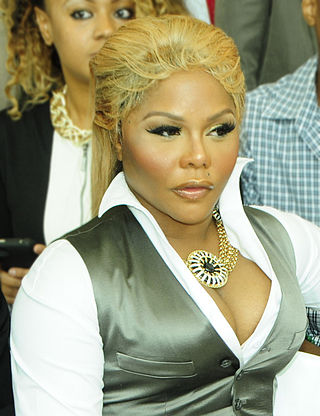
Advanced Chemistry is a German hip hop group from Heidelberg in Baden-Württemberg, South Germany. Advanced Chemistry was founded in 1987 by Toni L, Linguist, Gee-One, DJ Mike MD and MC Torch. Each member of the group holds German citizenship, and Toni L, Linguist, and Torch are of Italian, Ghanaian, and Haitian backgrounds, respectively.

Dutch hip hop or Nederhop ("Netherhop") is hip hop / rap music created by Dutch speaking musicians in the Netherlands and Flanders (Belgium). Although the first Dutch rappers in Europe typically wrote in the English language, this began to change when Osdorp Posse gained a big following of fans. They were the first to record and release hip hop in the Dutch language, perform for big crowds and to achieve chart success with their albums.

Rapping is an artistic form of vocal delivery and emotive expression that incorporates "rhyme, rhythmic speech, and [commonly] street vernacular". It is usually performed over a backing beat or musical accompaniment. The components of rap include "content", "flow", and "delivery". Rap differs from spoken-word poetry in that it is usually performed off-time to musical accompaniment. It also differs from singing, which varies in pitch and does not always include words. Because they do not rely on pitch inflection, some rap artists may play with timbre or other vocal qualities. Rap is a primary ingredient of hip hop music, and so commonly associated with the genre that it is sometimes called "rap music".
German hip hop refers to hip hop music produced in Germany. Elements of American hip hop culture, such as graffiti art and breakdancing, diffused into Western Europe in the early 1980s.
Turkish hip hop refers to hip hop music produced by members of the Turkish minority in Germany, and to a lesser degree by hip hop artists in Turkey. The Turkish minority, called the Turks, first drew inspiration from the discrimination and racism they received while living as migrant workers in Germany in the 1960s. Turkish hip hop uses Arabesk music, a folk style that finds its roots in Turkey during the 1960s, and is influenced by the hip hop music of America and Germany. Album artwork, lyrical content, and the Turkish language are used by hip hop artists to express their uniquely Turkish identity.

Dana Elaine Owens, known professionally as Queen Latifah, is an American rapper, singer, and actress. She has received various accolades, including a Grammy Award, a Primetime Emmy Award, a Golden Globe Award, three Screen Actors Guild Awards, and two NAACP Image Awards, in addition to a nomination for an Academy Award. In 2006, she became the first hip hop artist to receive a star on the Hollywood Walk of Fame.

Salt-N-Pepa is an American hip hop group formed in New York City in 1985, that comprised Salt, Pepa, and DJ Spinderella. Their debut album, Hot, Cool & Vicious (1986), sold more than 1 million copies in the US, making them the first female rap act to achieve gold and platinum status by the Recording Industry Association of America (RIAA). The album included the single, "Push It", which was released in 1987 as the B-side to their single "Tramp", and peaked within the top 20 on the Billboard Hot 100.

Kimberly Denise Jones, better known by her stage name Lil' Kim, is an American rapper. She was born and raised in New York City and lived much of her adolescent life on the streets after being expelled from home. In her teens, she would freestyle rap, influenced by fellow female hip-hop artists like MC Lyte and the Lady of Rage. In 1994, she was discovered by fellow rapper The Notorious B.I.G., who invited her to join his group Junior M.A.F.I.A.; their debut album, Conspiracy, generated two top 20 singles in the United States and was certified gold by the Recording Industry Association of America (RIAA).
Kwaito is a music genre that emerged in Soweto, Johannesburg, South Africa, between the late 1980s and 1990s. It is a variant of house music that features the use of African sounds and samples. Kwaito songs occur at a slower tempo range than other styles of house music and often contain catchy melodic and percussive loop samples, deep bass lines and vocals.

Frederik Hahn , better known by his stage name Torch, is a German rapper. He is also known as DJ Haitian Star. He was among the first German rappers who began rapping in German in the mid-1980s in Heidelberg, laying the foundation for the success of German hip hop music. In 1985, Afrika Bambaataa named him king of the first German chapter of the Zulu Nation and also gave him the title: Overlord of Sound & Culture.

Robert Frazier, known professionally as Chill Rob G, is an American rapper from Jersey City, New Jersey.

Rashia Tashan Fisher, known professionally as Rah Digga, is an American rapper and actress. She is best known as a longtime member of the Flipmode Squad, a hip hop group led by Busta Rhymes. Her debut album, Dirty Harriet (2000), peaked in the top-20 of the Billboard 200, and she released her second album, Classic, in 2010. She starred in the horror film Thirteen Ghosts (2001) as Maggie.

Palestinian hip hop reportedly started in 1998 with Tamer Nafar's group DAM. These Palestinian youth forged the new Palestinian musical subgenre, which blends Arabic melodies and hip hop beats. Lyrics are often sung in Arabic, Hebrew, English, and sometimes French. Since then, the new Palestinian musical subgenre has grown to include artists in Palestine, Israel, Great Britain, the United States and Canada.

Still Da Baddest is the fourth studio album by American rapper Trina. It was released on April 1, 2008, by Slip-n-Slide, EMI and DP Entertainment. The album was preceded by the lead single, "Single Again" on November 6, 2007. Following the poor chart performance, "I Got a Thang for You" featuring Keyshia Cole, was released as the album's second single. The album's third and final single "Look Back at Me" featuring Killer Mike, which was produced by Hard Hat Productions, became a regional hit club record and accompanied by a music video.
LGBT representation in hip hop music have existed since the birth of the genre even while enduring blatant discrimination. Due to its adjacency to disco, the earliest days of hip hop had a close relation to LGBT subcultures, and multiple LGBT DJs have played a role in popularizing hip hop. Despite this early involvement, hip hop has long been portrayed as one of the least LGBT-friendly genres of music, with a significant body of the genre containing homophobic views and anti-gay lyrics, with mainstream artists such as Eminem and Tyler, the Creator having used casual homophobia in their lyrics, including usages of the word faggot. Attitudes towards homosexuality in hip hop culture have historically been negative, with slang that uses homosexuality as a punchline such as "sus", "no homo", and "pause" being heard in hip hop lyrics from some of the industry's biggest artists. Since the early 2000s there has been a flourishing community of LGBTQ+ hip hop artists, activists, and performers breaking barriers in the mainstream music industry.

Shadia Mansour, also known as "the first lady of Arabic hip hop" is a British-Palestinian rapper who performs in Arabic and English. Much of her music revolves around Middle Eastern politics.
Misogyny in rap music is defined as lyrics, videos, or other components of rap music that encourage, glorify, justify, or legitimize the objectification, exploitation, or victimization of women. It is an ideology that depicts women as objects for men to own, use, and abuse. It reduces women to expendable beings. It might include everything from innuendos to stereotypical characterizations and defamations.
Hip hop feminism is a sub-set of black feminism that centers on intersectional subject positions involving race and gender in a way that acknowledges the contradictions in being a black feminist, such as black women's enjoyment in hip hop music and culture, rather than simply focusing on the victimization of black women in hip hop culture due to interlocking systems of oppressions involving race, class, and gender.
Feminist activism in hip hop is a feminist movement based by hip hop artists. The activism movement involves doing work in graffiti, break dancing, and hip hop music. Hip hop has a history of being a genre that sexually objectifies and disrespects women ranging from the usage of video vixens to explicit rap lyrics. Within the subcultures of graffiti and breakdancing, sexism is more evident through the lack of representation of women participants. In a genre notorious for its sexualization of women, feminist groups and individual artists who identify as feminists have sought to change the perception and commodification of women in hip hop. This is also rooted in cultural implications of misogyny in rap music.

Belcalis Marlenis Cephus, known professionally as Cardi B, is an American rapper and songwriter. Known for her aggressive flow and outspoken clever lyrics, Cardi B has established herself as one of the most successful female artists in contemporary music. Born and raised in New York City, she first gained popularity through videos shared on Vine and Instagram. From 2015 to early 2017, she appeared as a regular cast member on the VH1 reality television series Love & Hip Hop: New York, which depicted her pursuit of her music aspirations, and earned further recognition with the release of her two mixtapes: Gangsta Bitch Music, Vol. 1 (2016) and Vol. 2 (2017).














